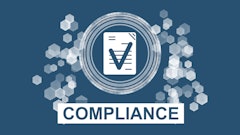In my 2004 book of the same name, I defined Supply Chain Management as the "systemic, strategic coordination of the traditional business functions within a particular company and across businesses within the supply chain, for the purposes of improving the long-term performance of the individual companies and the supply chain as a whole." Obviously from that definition, someone has to lead the coordination in the supply chain. But what leadership skills are needed in supply chains to accomplish this?
Before we get to leadership skills, this definition implies a necessary understanding by the supply chain leader not only of the traditional business functions of finance, marketing, production, accounting, sales and procurement, but also of such processes that flow across companies in managed supply chains as customer relationship management, procurement/supplier relations, operations/logistics management and process design. Customer relationship management encompasses the traditional functions of marketing and sales, but also enfolds the leadership issues of identifying the customers that are important enough to warrant a long-term relationship, taking the initiative to build the relationship (often from the top down in the customer and seller organizations), and motivating supply chain employees to implement the details of the relationship. Similarly, procurement/supplier relations involves the same selection, building and motivating activities at all levels with select suppliers.
Leadership in operations/logistics management requires a grasp of the "nuts and bolts" activities required to source, manufacture, store and deliver the products/services the customer has asked the supply chain to provide. Process design takes a proactive approach to the development of the supply chain processes just discussed (as opposed to letting processes "evolve" as contingencies necessitate).
Taking a Supply Chain Orientation
To lead a supply chain through these activities, a supply chain orientation is required. A supply chain orientation is, quite simply, the vision of the leaders to see the system-wide, strategic implications of coordinating across several companies the various activities and processes required to create and nurture a managed supply chain. Such an orientation requires the leadership skills of:
- A collaborative, teamwork-oriented management style;
- Operational excellence;
- IT proficiency;
- An ability to assess environmental trends;
- Mentoring;
- A metrics orientation; and,
- A cross-functional attitude.
Building a collaborative, team-oriented culture starts with the leader's realization that the company must work together with supply chain partners to deliver value for consumers. In practice, such a culture encompasses the codes of conduct in the process of pursuing mutual as well as individual supply chain goals. Broadly speaking, codes of conduct include the willingness to share information with partner firms, flexible actions such as quickly adapting to changing supply and demand for the good of the entire supply chain, and performing mutual responsibilities with a team spirit when the supply chain faces threats and/or a part of supply chain process fails. Narrowly, codes of conduct include "vendor codes of conduct," "labor regulation" and/or "business ethics codes." Certification programs may be available, which are arranged or offered by a supply chain leader.
Operational excellence means the supply chain leader has an intimate understanding of the operational details in sourcing, transforming and delivering products/services when and where the ultimate customer desires them. This does not always mean the leader's skills fall in the disciplines of operations and/or logistics, but it does imply an understanding of their strategic, cross-company importance and an ability to manage these often-disparate and geographically dispersed activities.
"Taking the Pulse"
Similarly, the supply chain leader does not have to be an "IT person," but an understanding of its function and often its potential competitive advantage is crucial. It is important for the supply chain leader to sufficiently understand new technologies so that the leader can effectively challenge the business case. Most firms that bought leading-edge supply chain systems several years ago acknowledge that they use only a fraction of the true capability of the software and an even smaller fraction of the promised capability. The leader must constantly challenge the supply chain to justify new information technology and push for its full realization when implemented.
The environment surrounding global supply chains is changing at an almost unimaginable rate. New forms of technology, competition and buyer demands — all at an increasing rate of change — make it imperative that supply chain leaders constantly "take the pulse" of their environments and prepare to meet the changes. As one CEO remarked to me: "Something is happening today that will put my company out of business. It is my job to figure out what that something is and deal with it before that happens."
Leaders grow other leaders. A supply chain cannot survive long term on the shoulders of one leader. Effective supply chain leadership means identifying and nurturing rising talent, both within the leader's company and within the organizations of supply chain partners.
Thinking Cross-functionally
I point out in every book that I write that "what gets measured gets rewarded, and what gets rewarded gets done." Leadership in supply chain management implies a commitment to developing key performance indicators (KPI) of success in the supply chain and then rewarding anyone in the supply chain that can affect these KPIs for driving them in the right direction.
Finally, a supply chain leader cannot be bogged down in the traditional thinking of the function in which they were trained. Effective supply chain management requires coordinated activities across the marketing, sales, logistics, production, procurement, accounting and finance functions of all the supply chain partners. Without an understanding of the vital roles all these functions play, and rewarding them for playing those coordinated roles, the supply chain leader will not drive performance that ensures the long-term success of all the companies in the supply chain.
At this point, you could argue that the supply chain leader must have a skill set that truly differentiates him or her from traditional managers. I agree with this assessment and argue that this is a good thing. Success comes from distinguishing the performance of the individual, the company and the supply chain apart from "the pack." As I often tell supply chain executives, "If this were easy, everyone would do it, and then there would be no competitive advantage." Successful supply chain management requires setting yourself apart from the pack, and it is the job of the supply chain leader to drive this success.


























